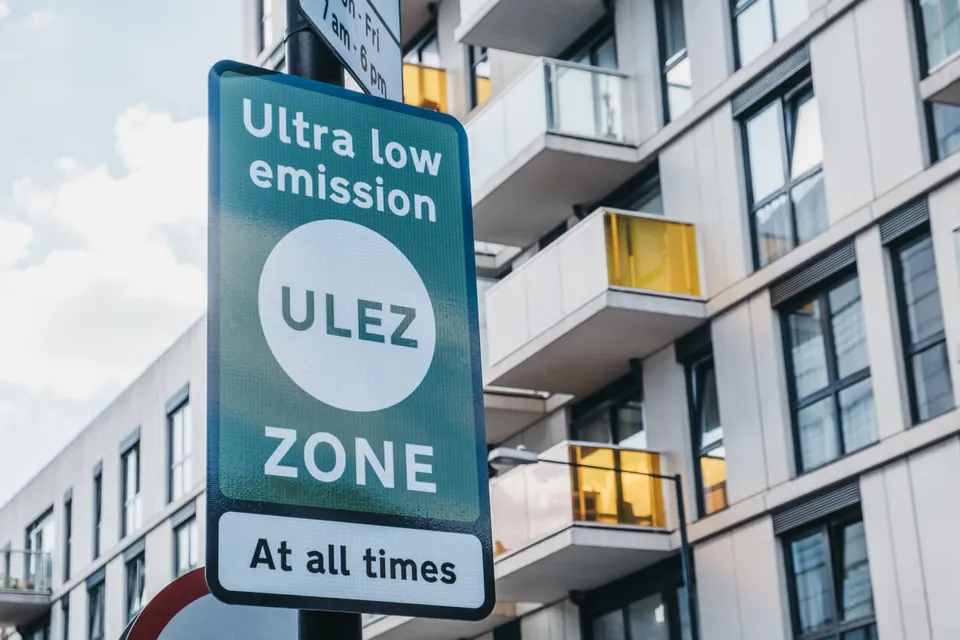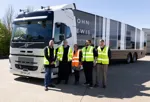Transport for London (TfL) has launched a consultation on plans to expand the ultra-low emission zone (ULEZ) to cover almost the whole of the capital from August 29, 2023.
The consultation also focuses on a possible road pricing scheme in the capital. This could include scrapping existing charges, such as the congestion charge, and replacing them with a single road user charging scheme.
The Mayor of London, Sadiq Khan, says that expanding the ULEZ London-wide will have the biggest effect on emissions relative to the cost to Londoners as a whole, as well as helping to tackle the climate emergency and traffic congestion.
The current £12.50 daily charge level for cars, vans and motorbikes that do not meet the standards would be retained.
If a larger zone were introduced, TfL estimates that the number of cars not meeting the tough ULEZ standards each day in outer London would fall from 160,000 to 46,000 and the number of vans from 42,000 to 26,000.
Khan said: “More than half of the 500,000 Londoners with asthma live in outer London and all areas of London still breach safe levels of pollution.
“That’s why my proposals for expanding the ultra-low emission zone are the right thing to do. Air pollution is not just a central London issue and Londoners in the outer boroughs should be able to enjoy the clean air benefits the ULEZ brings.
“We’re keen to hear from all Londoners, so please share your views on my plans to build a better London for everyone – a safer, fairer, greener and more prosperous city for all Londoners.”
Emission standards in central London have helped reduce nitrogen dioxide at the roadside by around half.
In outer London more than four out of five vehicles are already compliant with the ULEZ standards, says TfL.
For those who own older, more polluting vehicles, Khan says there will be as big a vehicle scrappage scheme as is feasible to help people adapt to the change if the proposals are confirmed.
Adam Tyndall, programme director for Transport at London First, said: "The ULEZ has been transformative in cleaning up London's air but there is clearly more to be done.
“For example, congestion on the capital’s roads still costs the economy more than £5bn every year, and if we are to achieve the Mayor’s ambitious net zero targets then bold thinking is required.
“Solving these challenges will involve difficult decisions, so it is important that Londoners and London’s business engage fully with this consultation.”
Other proposals being consulted on include: changes to the penalties for non-payment of the ULEZ and Congestion Charge – from £160 to £180 (£80 to £90 if paid within 14 days); removal of the £10 Auto Pay per vehicle annual registration fee for all schemes.
Andy Marchant, traffic expert at TomTom, says low emission zones (LEZs) are particularly beneficial for regulating the flow of traffic to ensure that drivers of polluting vehicles are disincentivised from driving into city centres, while electric vehicles (EVs) can travel freely.
However, he said: "LEZs will likely become less important as the volume of EVs increases naturally in line with other regulations that ban the sale of diesel and gasoline vehicles.
“When EVs become the norm, there won’t be any emissions-based restrictions preventing them from entering cities. There’s the possibility that this will lead to an increase in inner-city congestion, even if it generates zero-tailpipe emissions.
"It’s an issue that shouldn’t be overlooked by city planners. If that becomes the case, we can expect more cities to introduce more stringent congestion charges, taking the place of LEZs to influence the movement of traffic.”
The consultation closes on 29 July 2022 at 2359. To respond go to: gov.uk/clean-air.






















GlennEwen - 20/05/2022 12:25
What is the point of a consultation on something that has already been decided?